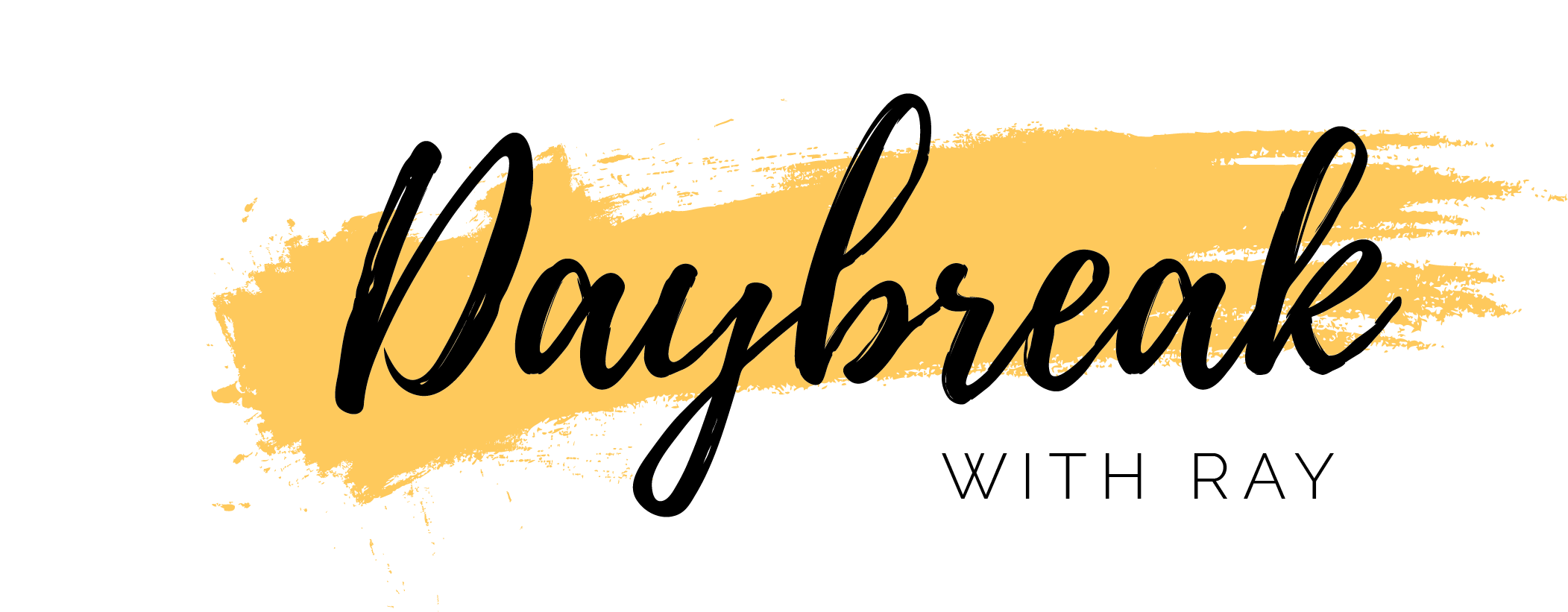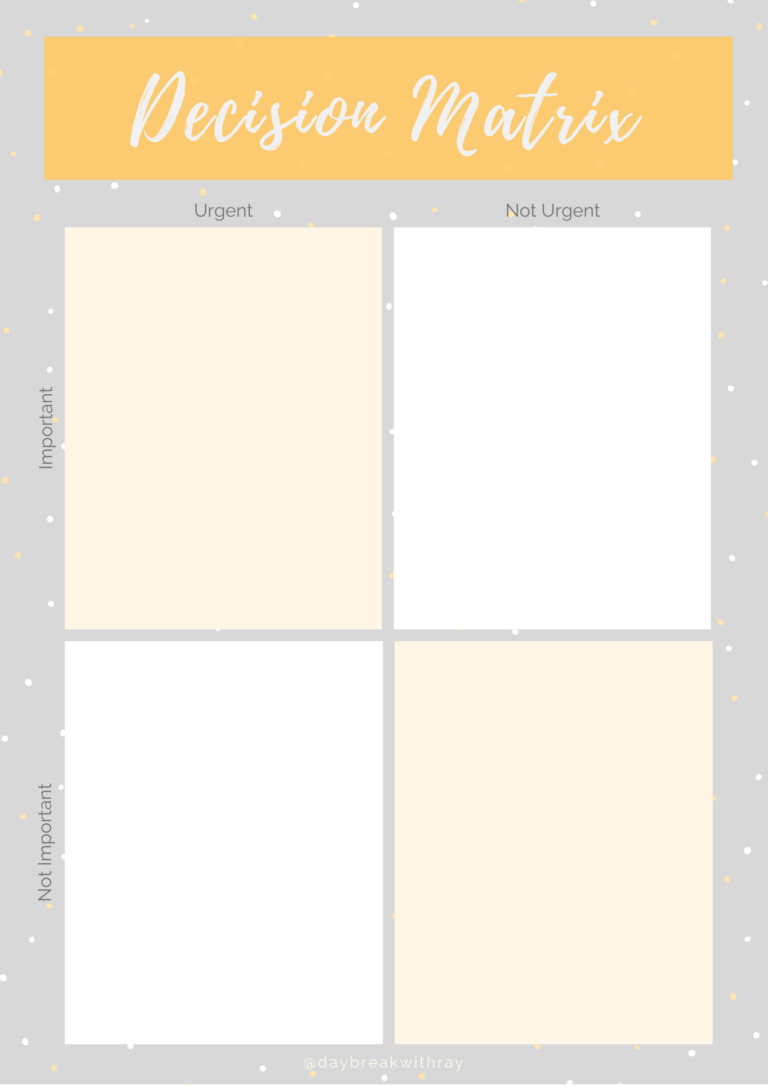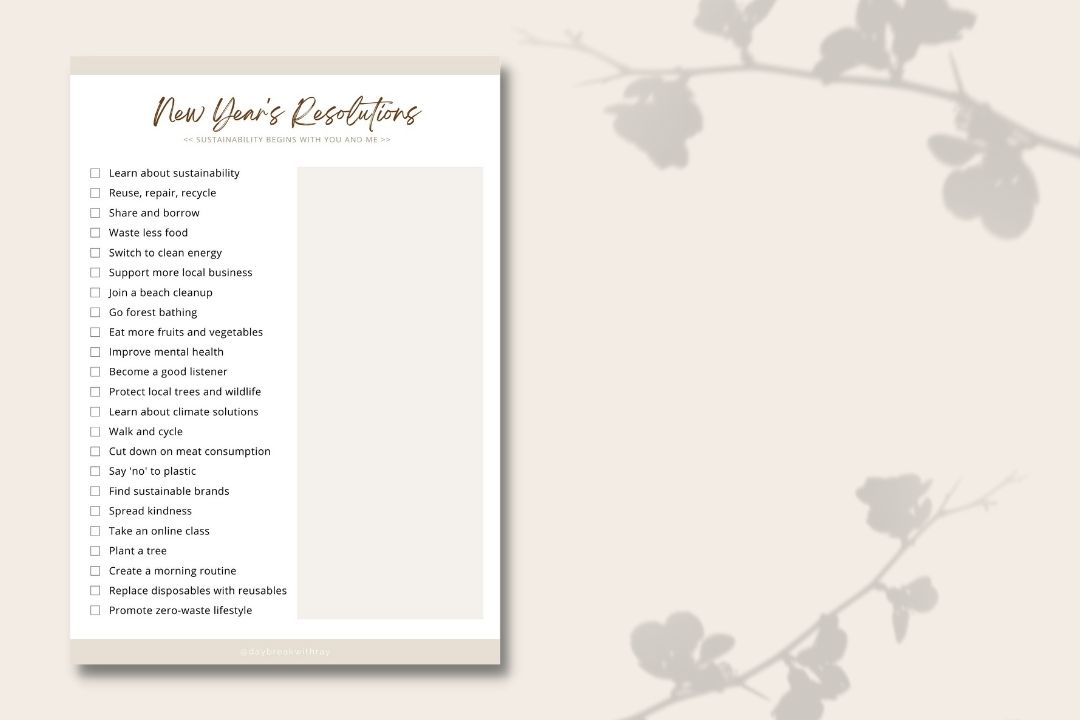4 Questions to Get a Head Start for the Week
What is the first day of the week in your country?
Some might say Sunday while the others would agree that it’s Monday. Although the workweek here in Hong Kong starts on a Monday, I like to think of Sunday as the first day of my week (that’s why most of my calendar templates start on a Sunday!). The reason behind is this – I get a head start.
By head start, I don’t mean working on a Sunday when you should be taking a break from work and spending quality time with your family. Instead, depending on how you spend your Sunday, you can significantly boost your productivity levels over the week.
So here are a few questions to ask yourself:
1. What is my goal for the week?
By setting a weekly goal, you are choosing where you want to be in 7 days. Do you want to be healthier? Happier? Was there something you wanted to try or something new you wanted to learn? Did you want to foster a new habit or even get rid of an old habit? Once you’ve decided where you want to be, it’s time to figure out how to get there.
Let's say you want to be more mindful so you pick up meditation.
Your first step would be to set your weekly goal. It could be something like this: Meditate 3 times this week. Over the week, you can break down your goal into steps such as
Day 1. Download a meditation app
Day 2. Wake up 5 minutes earlier than usual
Day 3. Meditate for 5 minutes before you start the day
Day 4. Set an alarm for your meditation session
Day 5. Change your environment
Day 6. Notice any changes
Day 7. Review your goal
Once you’re done setting your goal and breaking it down into smaller steps to help you get there, it’s time to put your plans into action. Each day, you will take one step that will bring you closer to your weekly goal and after 7 days, you’re already a different person than you were a week ago!
- Set your weekly goal
- Break down your goal into steps
- Take action each day
2. Am I using my planner?
Planners are extremely useful. Not only do they help organize your plans and thoughts, but they also help you focus better on your goals because it becomes more clear when you write it down. However, the biggest reason for me to use a planner is to remind myself how far I’ve come.
There are times when I feel lost despite knowing that I am working towards my goal every single day. I start to question whether I’m making the changes I want to make. That’s when I look back at my planner and realize how much progress I’ve made over the past few weeks or months.
First, find yourself a notebook. You could use an app if that’s more convenient but I personally like old-school pen and paper (Definitely not because I bought too many notebooks from when I was studying but never got the chance to use them all).
Second, use colors. Whether it’s colored pens or highlighters or even post-its, adding a few colors just makes planning more fun! And it’s pleasant to look back at.
Third, review and update. Remember, there is no final draft. As you progress towards your goals, you may often find yourself reviewing your plans and making changes to obtain better results. This is a great practice and will help immensely in achieving your goals.
3. What is my priority?
I know it’s cliché but it’s the truth. We all have 24 hours a day. Even if you’re a millionaire with your own company or a full-time student at a normal college, you’re only given 24 hours each day. So how do millionaires who probably have a lot more going on in their company manage to achieve more than that of a full-time student trying to pay off debts? The key is prioritization.
A useful trick to help decide what you should prioritize would be what I call – The Decision Matrix.
Simply put, you use a 2 x 2 table to divide your tasks into four categories.
1: Urgent & Important
2: Not Urgent & Important
3: Urgent & Not Important
4: Not Urgent & Not Important
- Do: Things you should focus on first (e.g. Deadline driven projects)
- Plan: Things you can start preparing for (e.g. Project planning)
- Delegate: Things you may pass to others (e.g. Replying unimportant emails)
- Eliminate: Things that waste time (e.g. Social Media)
4. Am I taking regular breaks?
As straightforward as it sounds, we may forget to give ourselves a well-deserved break simply because we’re too caught up in the flow of working. I find it extremely difficult to keep track of time when I’m in the flow so instead of looking at the time and realizing I forgot to eat lunch, I would set several alarms at different parts of the day. And with each alarm I set, I give it a special name.
Take my experience as an example.
I usually get hungry after breakfast (7.30 am) and to prevent myself from snacking on junk food, I set a “Fruity Snack” alarm for 10.30 am. It not only serves as a break from work but also, it’s a reminder for myself to stay healthy by getting off my chair and grabbing a fruit to snack on.
A way to distinguish my “Fruity Snack” with other alarms is the ringtone. For “Fruity Snack”, I use a playful ringtone whereas for “Keep Fit!”, I use an uplifting song I feel like dancing to as motivation to workout.
Lastly, I think of these breaks as a way to stay healthy because good health is the best long-term investment to make for yourself.
To Conclude
To summarize, ask yourself the 4 questions above at the start of your week (Sunday or Monday) and get a head start on your weekly goal. And in 7 days, you’ll be a more productive, healthier, and happier person already!
Beauty sleep does more than make you glow. It can boost your immune system and keep your healthy. Bu
Coffee lovers, unite! Whether you’re sipping a morning brew or enjoying an afternoon pick-me-u
If you have yet to make your 2022 New Year’s Resolutions, you’re at the right place! This year,




